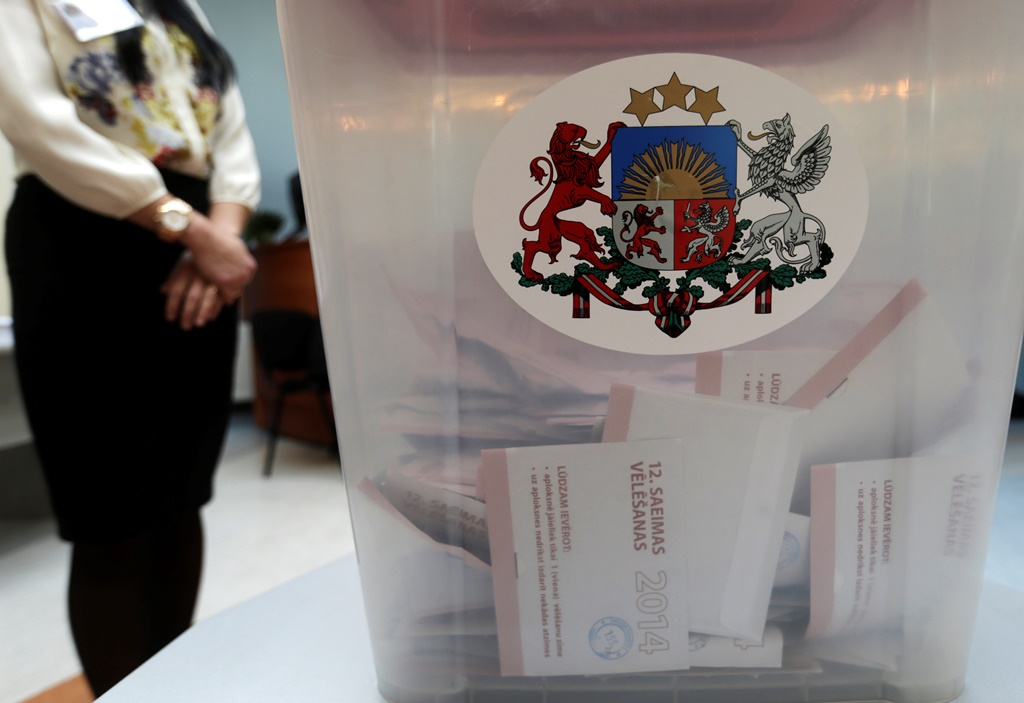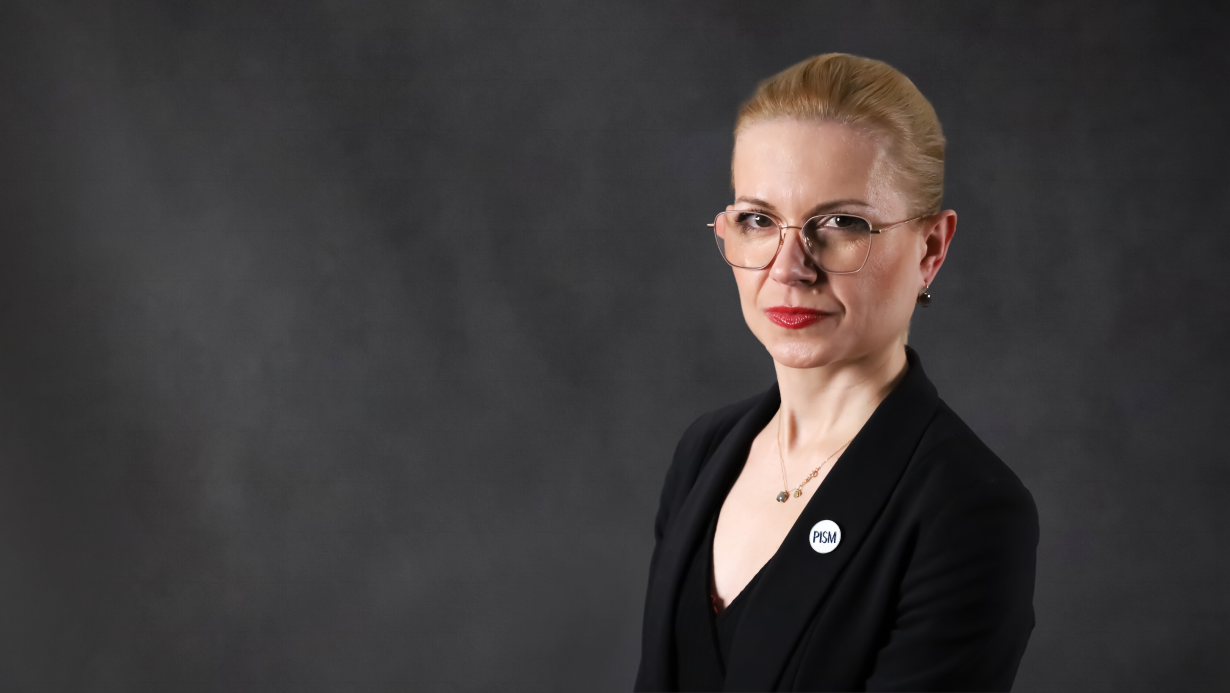Changes in Latvian Foreign Policy after the Parliamentary Elections

Changes in the Political Scene
This year’s elections for the 100-member one-chamber parliament of Latvia (the Saeima) is likely to result in the creation of a new government coalition. Recent polls not only reflect the progressive fragmentation of the political scene but also are characterized by high volatility and diversity. They also point to a significant group of undecided voters (up to 23%). The Social Democratic Party “Harmony”, which is pro-Russia, is leading the polls (up to 21.5%). One of the parties currently in power, the Union of Greens and Farmers (ZZS), is declining, with support ranging from 9 to 11.5%. In turn, the growing popularity of the populist and anti-establishment party KPV LV (the official name is an abbreviation in Latvian for “Who owns the state?”), which in the polls has from 7.5 to 13% voter support. The party calls for reducing the bureaucracy and a change of elite. One of its leaders, though, is suspected of illegal financing of the party. The other two parties included in the current cabinet: the conservative National Union and the centre-right New Unity poll a bit above the 5% electoral threshold and may reach even 9% and 14%, respectively.
The likely general winner of the election, the Harmony party, is perceived mainly as aiming to secure the interests of the Russian-speaking minority. At the same time, it seeks to expand its electorate to more ethnic Latvians. This is evidenced by the candidacy of Vjačeslavs Dombrovskis for the post of prime minister. Previously, he competed with the Reform Party, proposing a fight against corruption and oligarchs, which is still an important element in this year’s election campaign. At the same time, Harmony seeks voices with a conciliatory position in the discourse on minority rights, especially in comparison to the extreme Latvian Russian Union.
The Issue of National Minority
National identity and belonging to a linguistic community are key aspects of the social divisions in Latvia. About 25% of the inhabitants of this country are ethnically Russian. That is why national issues continue to determine the axis around which the country’s party system and political discourse are formed. However, having a Russian cultural identity does not exclude also having a Latvian political identity. Between 2015 and 2017, the percentage of those who considered themselves both a member of a minority—among whom Russian is the absolute majority—and felt very close or closely related to Latvia rose to 83%, a 16 percentage-point increase.
Despite these changes, nationality issues lead to conflict in the society. Language segregation of media favours this. A third of Latvia’s population and over half of non-Latvians (52%) watch television programmes in Russian. On the other hand, 20% of Russian speakers function completely outside the media space created in the Latvian language. This strong separation in the information sphere increases the possibility for Russia to have influence. The Russian side constantly accuses the authorities in Latvia of violating the rights of people of Russian origin, citing, for example, restrictions on educational opportunities in the Russian language.
Possible Changes in Foreign Policy
The parties that have a chance to enter parliament do not question Latvians’ commitment to integration with NATO and the EU or the strategic alliance with the U.S. Two parties, National Union and New Unity, even declare their willingness to strengthen the security guarantee, for example, through the permanent presence of U.S. troops in Latvia. New Unity also aims to raise defence spending to 2.5% of GDP.
The parties differ in Latvia’s priorities in the EU. In the opinion of New Unity, and sometimes also the pragmatic ZZS, European policy is to serve economic growth and to achieve a better position in the EU. For this purpose, Latvia should be as close to the
EU “core”. In turn, the conservative parties support the development of strong nation-states in the Union and object to further integration, above all politically.
The differences in stances relate to the future of Russian-Latvian relations. All of the parties that are likely to enter parliament support sanctions on Russia. The improvement of relations with their neighbour depends on Russia’s abandonment of its aggressive actions and respect and fulfilment of international obligations. However, Harmony is less categorical in this respect. It advocates the development of pragmatic relations with Russia, which remains one of Latvia’s main trade partners (fourth in 2017, down from second in 2013). In practice, this could mean increasing business cooperation, especially important for Latvia’s logistics sector. ZZS also seeks potential for cooperation with Russia and is open to strengthening trade exchange, despite the manifestation of opposition to Russia’s activities.
Conclusions and Perspectives
After the elections in Latvia, three scenarios are most likely. Considering the current practice of the political parties, the most realistic assumption is that ZZS will form a cabinet in a coalition with smaller right-wing parties. In the second scenario, if the most popular parties in current polling receive the majority of votes, Harmony could form a government with ZZS or with KPV LV. However, in the third scenario, the severe fragmentation of parliament and a large representation of nationalist and conservative groups, there could be a cabinet with the National Union dominant. If so, not even ZZS would enter the government, with which other parties, such as the New Conservative Party do not intend to cooperate. The final number of groups that will gain representation in parliament will therefore be crucial to which scenario comes to pass.
Although ZZS and KPV LV have announced they do not consider the possibility of forming a government with Harmony, this cannot be ruled out if there is no possible alternative. In addition, in the case of ZZS, its categorical stance is undermined by the fact that it cooperates with Harmony in some local governments. The caution towards the declarations stems from current practice, when Harmony won the parliamentary elections but could not build a coalition. In turn, for Harmony, the cost of the conditions of a compromise would be the need to take a clear position on Russia’s activities in Ukraine and the status of the Russian language in Latvia. This could result in a loss of credibility among the main part of its electorate. At the same time, Harmony representatives have not declared their interest in running the Ministry of Foreign Affairs, instead striving to hold the ministries of economy, transport, and social affairs. Nevertheless, Harmony’s presence in the government would translate into attempts to improve relations with Russia. This would result in demands for the development of pragmatic relations with Latvia’s neighbour in part by increasing trade cooperation, despite the sanctions being prolonged by the EU.
In the second and third scenarios, due to the fragmentation of the political scene, the new cabinet probably would consist of more than three parties. The creation of the coalition compromise and co-management of this multi-party coalition would involve substantial risk of the government decaying. However, even then Latvia’s main foreign policy strands should not change substantially. The centrist parties dominate the government, a more pragmatic approach to Latvia’s pursuit of its interests at the Union level can be assumed. This would mean a greater tendency to strengthen EU integration. The possible entry into the coalition of nationalist parties could result in a stronger critique of Union policy, such as the management of the migration crisis. At the same time, this could help increase the importance of regional cooperation, including through the Visegrad Group. In that case, greater political will to tighten bilateral relations with Poland may be expected. At the same time, Latvia, a member of the eurozone, will remain pragmatic and will support economic integration, especially if it translates into obtaining EU funds.


